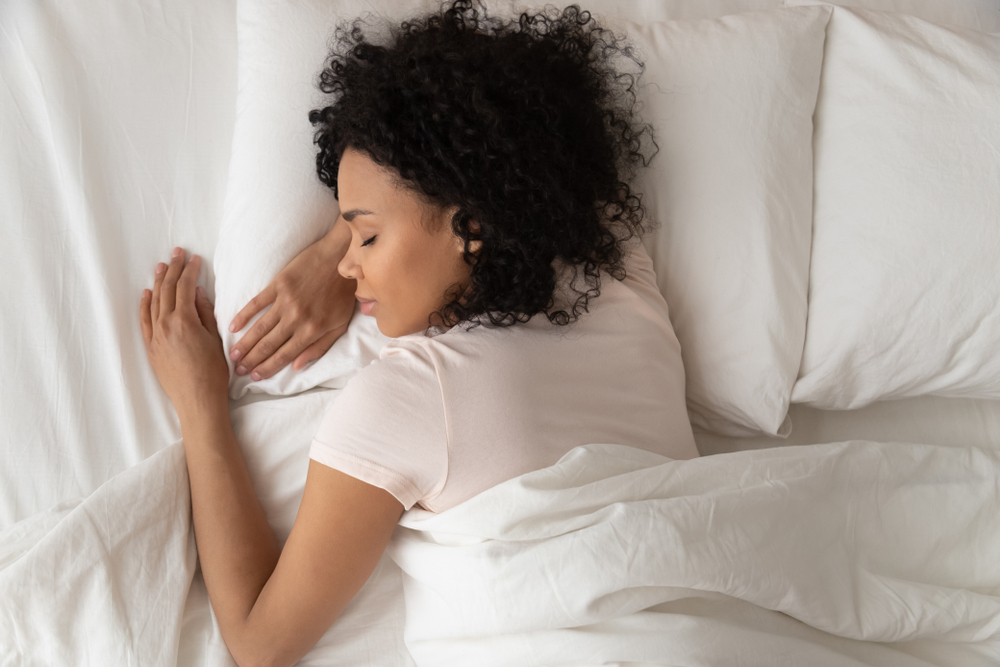The science behind night sweats
Night sweats, also known as sleep hyperhidrosis, occur when your body temperature regulation is disrupted during sleep. The hypothalamus — the part of your brain responsible for controlling body temperature — sends signals to your sweat glands when it senses an increase in temperature. This is a normal process during the day, but when it happens at night, it can be a sign that something is off balance in your body.
Various factors can trigger night sweats, ranging from environmental influences to more serious health conditions. The impact of these nocturnal sweats on your body extends beyond mere discomfort, affecting your sleep quality, immune system and overall health.
Common causes of night sweats
1. Hormonal fluctuations
Hormonal changes are one of the most common reasons for night sweats. For women, this is particularly evident during menopause, pregnancy or menstruation. The fluctuations in estrogen levels can cause hot flashes, which often lead to excessive sweating at night. Men, too, can experience hormonal imbalances — particularly with testosterone levels — leading to night sweats.
Hormonal night sweats are typically accompanied by other symptoms, such as mood swings, irritability and sleep disturbances, all of which can have a profound effect on your daily life. Understanding the connection between hormones and night sweats can help you manage these symptoms more effectively.
2. Medications and supplements
Certain medications and supplements can also lead to night sweats. Antidepressants, for example, are known to cause sweating as a side effect. Other medications — such as those for diabetes, blood pressure and cancer — can also contribute to night sweats.
If you notice a correlation between starting a new medication and the onset of night sweats, it’s essential to consult your health care provider. They may adjust your dosage or suggest an alternative treatment to alleviate this uncomfortable side effect.
3. Infections and illnesses
Infections and illnesses are another significant cause of night sweats. Conditions like tuberculosis, HIV and bacterial infections often present night sweats as a symptom. Even the common flu or cold can lead to excessive sweating during sleep as your body fights off the infection.
In some cases, night sweats can be a sign of more severe conditions, such as cancer. Lymphoma, for instance, is often associated with night sweats. If your night sweats are persistent and accompanied by other symptoms like weight loss or fever, it’s crucial to seek medical attention.
4. Stress and anxiety
Your mental and emotional state can also play a significant role in causing night sweats. Stress and anxiety trigger the release of stress hormones like adrenaline, which can lead to an increase in body temperature and subsequent sweating.
This type of night sweat is often accompanied by nightmares, increased heart rate and feelings of panic. Addressing the root causes of your stress or anxiety through therapy, meditation or lifestyle changes can help reduce the frequency and intensity of night sweats.
5. Sleep environment
Sometimes, the cause of night sweats can be as simple as your sleep environment. A room that is too warm, heavy bedding or wearing too many layers can all lead to overheating during sleep. Additionally, consuming spicy foods or caffeine before bed can increase your body temperature, leading to night sweats.
Making adjustments to your sleep environment, such as using breathable bedding, wearing lightweight pajamas and maintaining a cool room temperature, can significantly reduce night sweats caused by external factors.
The impact of night sweats on your health
1. Disrupted sleep patterns
One of the most immediate effects of night sweats is disrupted sleep. Waking up in the middle of the night drenched in sweat can make it difficult to fall back asleep, leading to a fragmented sleep pattern. Over time, this can result in sleep deprivation, which has a cascade of negative effects on your health, including impaired cognitive function, weakened immune system and increased risk of chronic conditions like heart disease and diabetes.
2. Dehydration
Excessive sweating, especially at night, can lead to dehydration. While you may not realize it, losing fluids through sweat can result in an imbalance of electrolytes in your body. Dehydration can cause headaches, dizziness and fatigue, making it difficult to function at your best during the day.
To combat dehydration caused by night sweats, it’s essential to stay hydrated throughout the day. Drinking plenty of water — especially before bed — can help replenish the fluids lost during sleep.
3. Skin irritation
Constant exposure to sweat can irritate your skin, leading to rashes, itchiness and even infections. The dampness from night sweats creates a breeding ground for bacteria and fungi, particularly in areas like the armpits, groin and under the breasts.
To prevent skin irritation, it’s important to maintain good hygiene. Showering in the morning and before bed, wearing loose-fitting clothing and using gentle, fragrance-free products can help keep your skin healthy despite the night sweats.
Managing and preventing night sweats
1. Identify and address underlying causes
The first step in managing night sweats is to identify any underlying causes. Whether it’s a medical condition, medication or lifestyle factor, addressing the root cause can significantly reduce the frequency and severity of night sweats.
Consulting with your health care provider is crucial in this process. They can perform tests to determine if there are any underlying conditions and recommend appropriate treatments.
2. Improve sleep hygiene
Improving your sleep hygiene can also help prevent night sweats. This includes creating a cool, comfortable sleep environment, sticking to a regular sleep schedule and avoiding triggers like spicy foods and caffeine before bed.
Additionally, incorporating relaxation techniques into your nightly routine, such as deep breathing exercises, meditation or a warm bath, can help reduce stress and promote better sleep.
3. Stay hydrated
As mentioned earlier, staying hydrated is key to managing the effects of night sweats. Drinking water throughout the day and especially before bed can help replenish lost fluids and prevent dehydration.
Consider keeping a glass of water by your bedside so you can easily hydrate if you wake up feeling parched during the night.
4. Use breathable bedding
Choosing the right bedding can make a significant difference in reducing night sweats. Opt for breathable, moisture-wicking fabrics like cotton or bamboo, which can help regulate your body temperature and keep you cool throughout the night.
Avoid heavy blankets or comforters that trap heat and instead layer your bedding so you can adjust as needed.
5. Seek professional help
If night sweats persist despite making lifestyle changes, it may be time to seek professional help. A health care provider can evaluate your symptoms, perform necessary tests and provide guidance on managing night sweats effectively.
In some cases, night sweats may be a symptom of a more serious condition, and early detection and treatment can make a significant difference in your health outcomes.
Taking control of your night sweats
Night sweats can be an uncomfortable and disruptive experience, but understanding what happens to your body when you sweat in your sleep can help you take control of the situation. By identifying the underlying causes, making necessary lifestyle changes and seeking professional help when needed, you can reduce the impact of night sweats on your health and enjoy a more restful, rejuvenating sleep.
Remember, your body is trying to tell you something when you experience night sweats. Listening to these signals and taking action can lead to better health, improved sleep, and overall well-being. Don’t ignore your night sweats — address them head-on and reclaim your nights for the restorative rest your body needs.
This story was created using AI technology.












